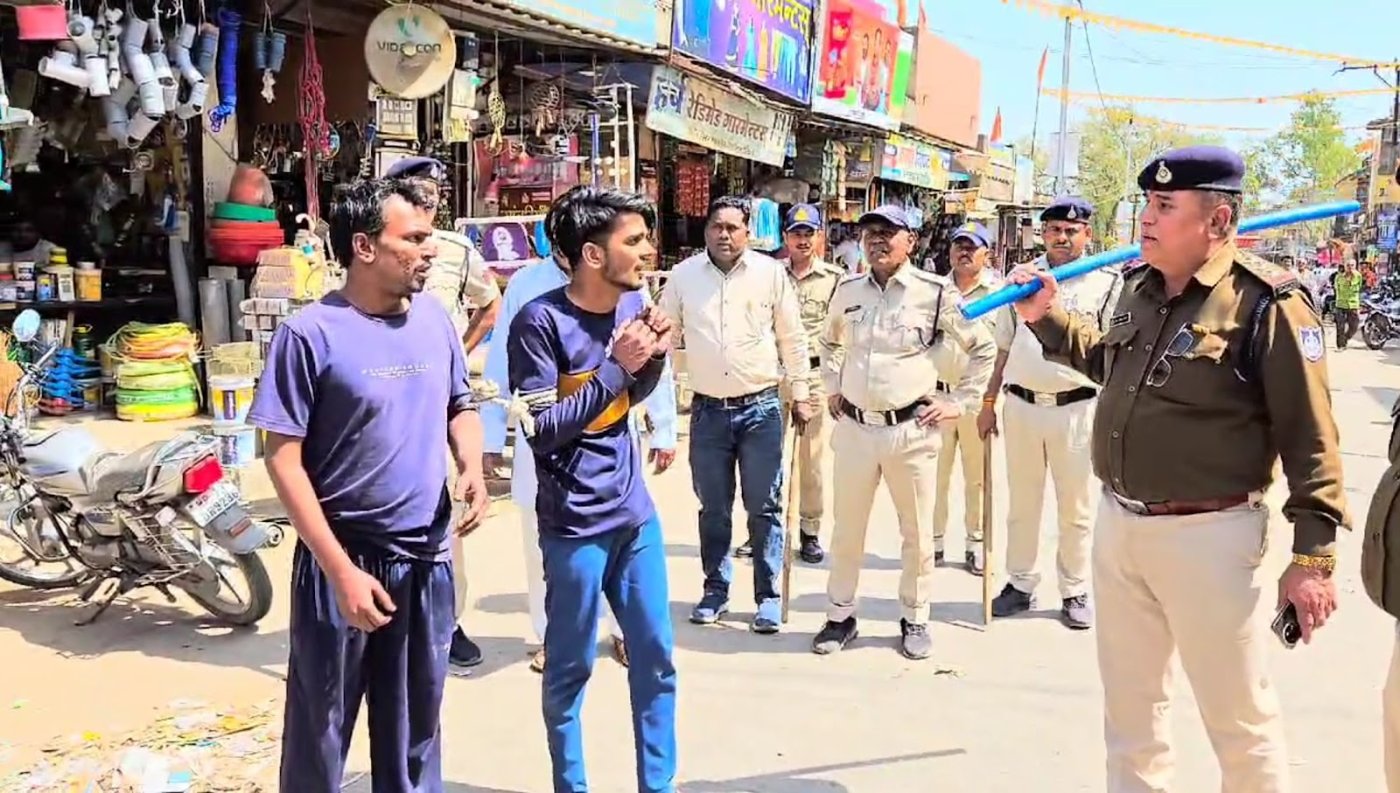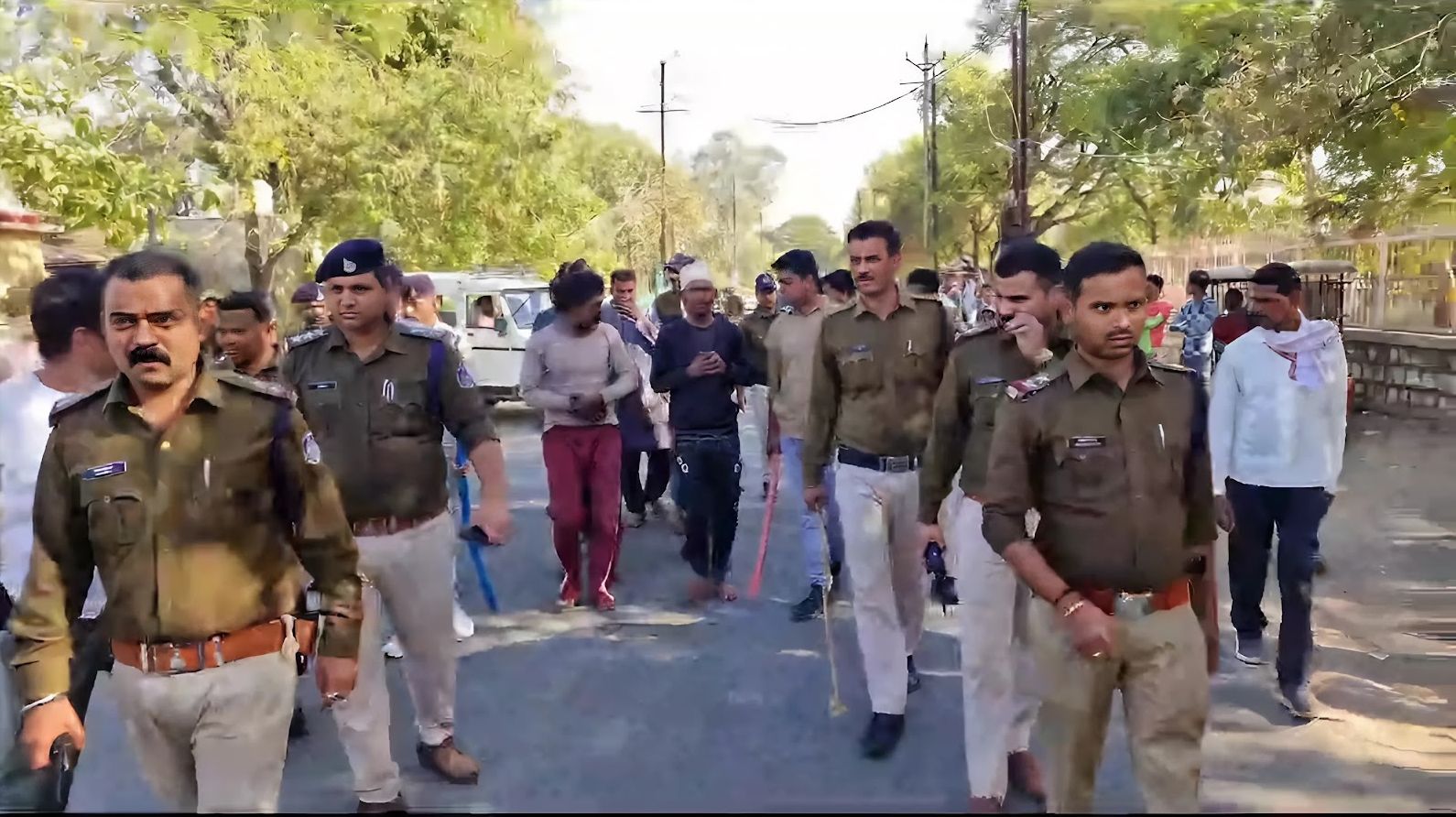
By Kashif Kakvi
Bhopal, Madhya Pradesh: “Gau hamari mata hai, police hamara baap hai.”
“Gau mata ki jai!”
The cow is our mother. The police are our father. Hail mother cow!
These were the slogans that the police forced five Muslim men accused of cow slaughter to chant, as they flogged and paraded them in the quiet town of Damoh in central Madhya Pradesh (MP) on 7 March 2025.
Within 12 hours of the incident, their homes were declared ‘illegal’ and demolished by the district administration in Damoh, home to 147,000, according to the 2011 census.

Over a month earlier, on 31 January 2025, almost 320 km south of Damoh, when two Hindus, identified as Ballu Padahe (60) and his son Virendra Pahade (35), were found with over 65 kg of beef, police arrested both and sent them to jail without a public spectacle.
The high court granted Ballu Padahe bail on 7 March, after 35 days in prison.
The two incidents made clear the selective approach adopted by the MP police in applying the Madhya Pradesh Cow Slaughter Prohibition Act, 2004, for similar crimes when the accused were Muslim and Hindu.
While the state has been governed by the Bharatiya Janata Party (BJP) for nearly two decades—barring a 15-month Congress interregnum—it was a Congress-run municipal council in Damoh that called for the demolition of Muslim homes within hours of the incident.
In addition, the council, chaired by Congress leader Manju Virendra Rai, issued eviction notices to 300 Muslims from the animal trading community (Qureshi) who have been living in the Qasai Mandi locality of the city for over a century.
This story was originally published in article-14.com. Read the full story here.

